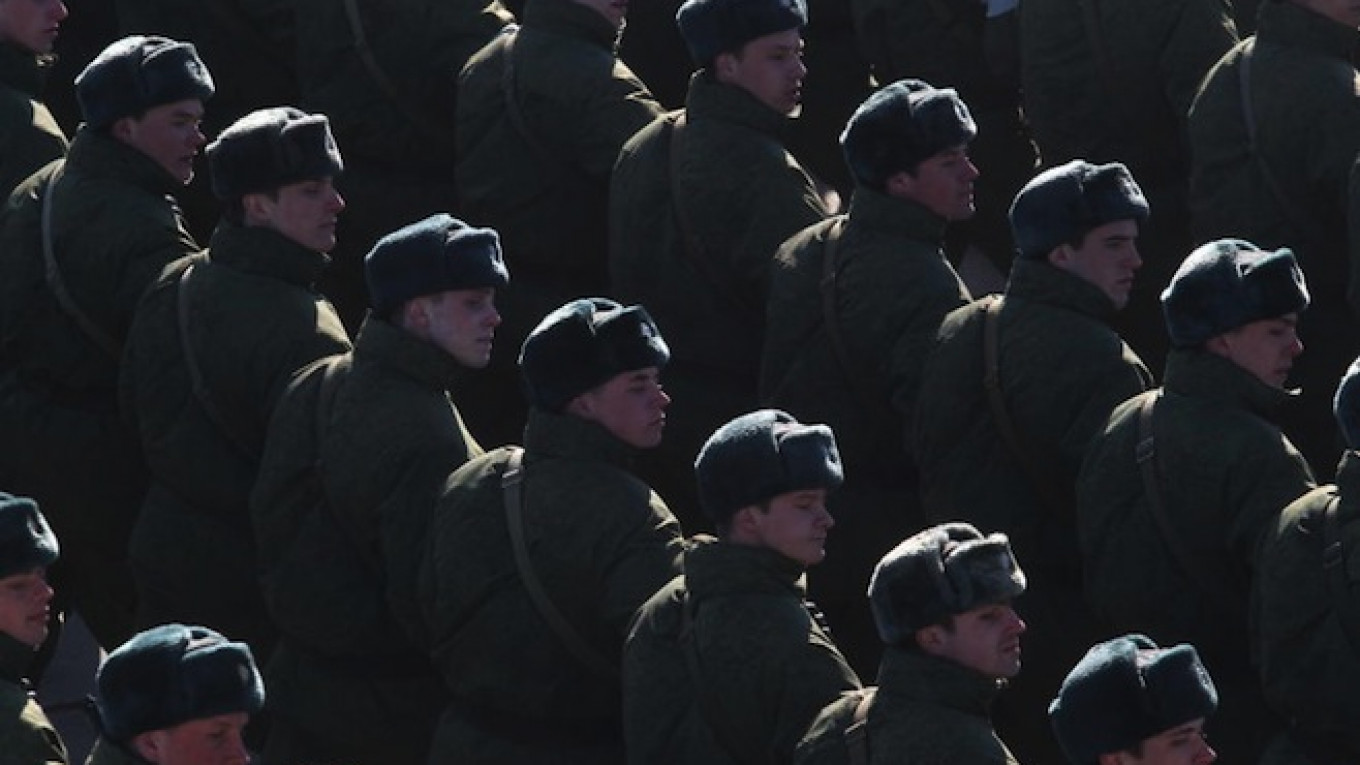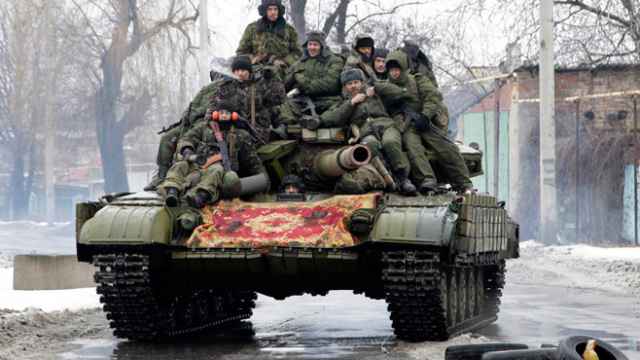Russia's Cabinet has introduced a bill in parliament that would speed up the enlistment of contract servicemen, as the country moves to replace its predominantly conscript army with a more professional force.
The bill, introduced in the State Duma by Prime Minister Dmitry Medvedev's Cabinet on Tuesday, would expand the powers of military offices that screen candidates for contract service, according to the text of the bill and its explanatory note published on the legislature's website.
Contract troops are currently signed up by military "commissariats," which are primarily occupied with managing Russia's massive military draft — preserved in the country since the Soviet era.
Amid a shift to an increasingly professional force, Russia established "screening units" in 2012 to focus on candidates for contract service, helping enlist more than 6,500 men every month, according to the government's note.
The Cabinet argued, however, that the lack of officially defined powers slowed down the units' work in enlisting candidates. It added that its bill to expand the selection offices' powers was prompted by a "switch to the priority of filling the ranks of the army and Navy with contract servicemen."
The move comes amid reports by Russian human rights groups that conscript soldiers are facing increased pressure to sign up as professional soldiers.
The move comes amid reports by Russian human rights groups that conscript soldiers are facing increased pressure to sign up as professional soldiers.
The Soldiers' Mothers of St. Petersburg, an NGO that battles to uphold the rights of Russian military personnel and their relatives, said recently that it had received a number of complaints to this effect regarding a military unit in Kamenka, a village around 100 kilometers northwest of St. Petersburg.
"[The soldiers] were assembled together in a room and told to sign contracts," said Irina, who asked to be identified only by her first name to protect her identity and that of her nephew, who is serving in Kamenka.
"No physical force was used against them, of course, but there was psychological pressure. […] They were told, 'If you sign the contract, you'll be paid more,' she told The Moscow Times.
A Message from The Moscow Times:
Dear readers,
We are facing unprecedented challenges. Russia's Prosecutor General's Office has designated The Moscow Times as an "undesirable" organization, criminalizing our work and putting our staff at risk of prosecution. This follows our earlier unjust labeling as a "foreign agent."
These actions are direct attempts to silence independent journalism in Russia. The authorities claim our work "discredits the decisions of the Russian leadership." We see things differently: we strive to provide accurate, unbiased reporting on Russia.
We, the journalists of The Moscow Times, refuse to be silenced. But to continue our work, we need your help.
Your support, no matter how small, makes a world of difference. If you can, please support us monthly starting from just $2. It's quick to set up, and every contribution makes a significant impact.
By supporting The Moscow Times, you're defending open, independent journalism in the face of repression. Thank you for standing with us.
Remind me later.






